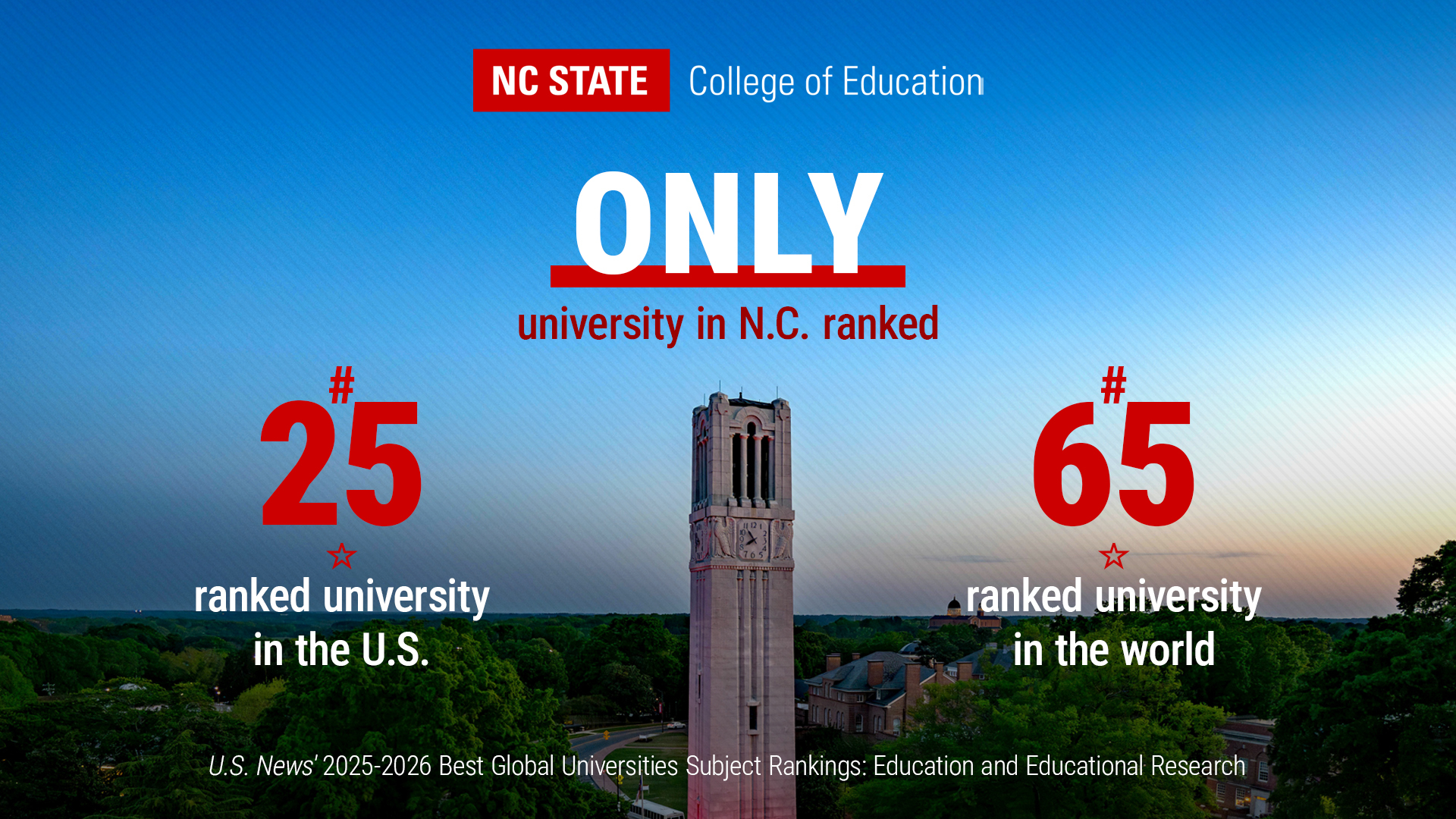Hannah Colaco ’23 completed her student teaching in two first-grade classrooms nearly 8,000 miles apart. The majority of her senior year was spent at an elementary school in Wake County. After spring break, she traveled across the Atlantic with a group of elementary and agricultural education majors from NC State to finish her student teaching in Stellenbosch, South Africa.
“It was really awesome to get to see the structure of education in a different country,” Colaco said.
Although the grade level was the same, Colaco noticed differences in the way classes were structured, how literacy was taught and even in how students reacted to her presence.
“The instant I walked in, they all came and hugged me,” Colaco said. “I was like, ‘I’ve never met you before; you guys had no idea I was coming, and now you’re so excited — this is so heartwarming.'”
The trip—led by Angela Wiseman, an associate professor of literacy education, and Ajaya Jonas, the NC State College of Education’s director of global programs—was designed to provide students with an opportunity to expand their global and cultural understanding in relation to education.
In total, eight NC State students who will step into their own classrooms this fall went on the trip, and each one of them engaged in a unique educational experience. Colaco often taught small lessons, working with students on their letters and numbers, while Alyssa Johnson ’23 found herself in front of the classroom on her second day, navigating the challenge of teaching a lesson to students who spoke Afrikaans, English and Hindi.
“I was just trying to do different interactive activities,'” Johnson said.
For example, to teach a lesson on nutrition, Johnson drew a chart on the board that was divided into fruits, vegetables, meat and dairy, and she asked students to come up and write or draw an example of each one.
Teaching in South Africa came with a variety of unique challenges, such as planning school days around scheduled blackouts, but Ally Schulze ’23 was struck by how the educators she worked with adapted.
“The classrooms I was placed in didn’t have nearly as many resources as classrooms in the United States, but I found the teachers employed their creativity and made it work,” Schulze said.
When not teaching, Schulze and the other students were able to interact with their peers at the University of Stellenbosch and they also went on a number of short trips, including a safari.

On another day, the students took a ferry to Robben Island, where Nelson Mandela spent almost 20 years imprisoned. Their tour guide had been imprisoned on the island as well, and the struggles he faced reminded Johnson of her own grandmother’s experiences.
“I was getting emotional seeing and hearing him talk,” Johnson said. “My Nana grew up during segregation, and I was thinking about how similar their stories would be.”
Before she left, Johnson purchased a hand-painted picture of Nelson Mandela to put in her classroom.
- Categories:



